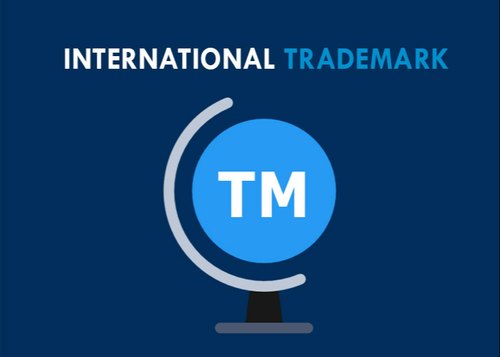This article is written by Neail.
Table of Contents
Introduction
A trademark is a trademark that companies use to help people differentiate and define their products among the rest of the market. By registering, companies can protect their brand identity from being duplicated or stolen from other competitors. Using the same logo or the logo is illegal. After registration, the company is provided with a trademark license and a registered TM number that helps identify the trademark.
The Trademark Registry is a body created in 1940 and currently supervises adherence to the 1999 Trademark Law and its regulations. It acts as an information center on trademark matters within India. The main aim of this organization is to register and protect trademarks while preventing unlawful use of the trademark.
Browse the articles below for more free information and guidelines on government registrations, taxes, compliance, patent filing process, and more.
A trademark is a “trademark” that companies use to help people identify and distinguish their products from the rest of the market. By registering, companies can protect their brand identity from theft or duplication by their competitors. The NIKE logo and logo are registered and therefore, cannot be used by anyone else. Using the same logo or the logo is illegal. Thus, a registered trademark is an invaluable asset for companies, and most companies rely heavily on them. After registration, the company is provided with a registered TM number or trademark license that helps identify the trademark.
To know more about Trademark in America please visit
Benefits of international registration
- It gives the company the exclusive right to market in those markets.
- It prevents forgery and guarantees the company exclusive rights to monetize its trademark.
- It provides a basis for franchises and building expansion strategies.
Madrid Protocol
India joined the Madrid Protocol on July 8, 2013. The protocol unifies registration in various countries and makes it easier for one to apply for trademark licensing in foreign countries. It provides one cost-effective strategy for obtaining a license in many foreign countries. To date, there are 104 members, covering 120 countries under the Madrid Protocol.
To implement this protocol, the company must have a valid trademark in India. With one app, you can reach multiple countries and thus reduce paperwork and expenses.
- The procedure fee is determined based on the category of license you need and the number of countries that need it to be valid. An amount of Rs 2,000 / – is to be paid to the Indian Trademark Registry.
Once the application is submitted, the officials of each country examine the documents to see if they comply with the laws of that particular country.
- The international registration is based on the basic application submitted for five years.
- If the country that wishes to work does not appear in the Madrid Protocol, separate requests must be submitted directly to those countries.
Advantages of the Madrid Protocol
- Lower costs compared to individual deposits.
- Easier to manage renewals and increases.
- Easier to add countries later.
Process of International trademark registration
- The registration of international trademarks requires an application by the trademark owner, through the office of origin in which the company is located.
For Indian companies, India acts as the origin office.
The office of origin processes the application and its files if it complies with the rules laid down by the Geneva Intellectual Property Organization.
- If the application is approved, it appears in the Official Gazette of International Marks of the World Intellectual Property Organization, and the International Bureau provides a certificate of registration after notifying the countries to which the applicant requested a license in the application.
- Every country has the right to reject the trademark, but objections must be raised within 12 to 18 months in the appropriate office.
- If there are no objections, the registration is considered complete.
- The mark is registered for a period of ten years under this protocol, after which it must be renewed through WIPO or the first originating office.

To register trademarks in India
- The applicant must be an Indian citizen or must have a registered business in India.
- The applicant must have submitted a trademark application to the Indian Trademark Registry. This national brand application forms the basis of their international demand. The mentioned services and products must be compatible with the services mentioned in the national brands.
- The applicant must choose one or more countries from the Madrid Protocol.
Brief steps
- Register a trademark in India first Before applying for international protection, make sure that you have registered for an Indian license.
- Do your research to protect your trademark in foreign countries, and read about its laws until you have a good understanding of the trade laws in those countries.
- Take advantage of the Madrid Protocol. This provides a holistic solution to all your concerns.
- Appointing a lawyer if the country in which you want to work does not fall under the Madrid system, (Saudi Arabia and Canada) hire a lawyer and ask for a lawyer.
- Translations are important. Carefully consider foreign languages as the translations may get tough when it comes to logos. Harmful terms in the English language may be offensive in other languages.
Nearly four million trademark requests are submitted annually worldwide. With more brands created and more companies expanded, it becomes imperative that you are aware of the laws required for you to grow your business and expand abroad. Understanding the intricacies of registering a brand helps you simplify your company’s growth prospects.
To register international brands, the trademark owner must fill the application out of the company. Once approved, the application will be displayed in the Official Gazette of International Marks of the World Intellectual Property Organization (WIPO). The International Bureau issues a registration certificate. Any country can reject the trademark, but the refusal must be within 12 to 18 months in the office. Thereafter, the trademark is registered for a period of 10 years and should be renewed through WIPO.
LawSikho has created a telegram group for exchanging legal knowledge, referrals and various opportunities. You can click on this link and join:
 Serato DJ Crack 2025Serato DJ PRO Crack
Serato DJ Crack 2025Serato DJ PRO Crack










 Allow notifications
Allow notifications


